Activist/Actor/Director Nate Parker is everywhere these days. He stars in the soon to be released film Beyond the Lights (opening in theaters tomorrow). He just released a powerful PSA inspired by the death of Mike Brown and the events in Ferguson, MO, and is currently working on his Nat Turner biopic, Birth of a Nation. Despite a very hectic schedule, the actor some are saying should be Hollywood’s next leading man, made time for an in-depth down interview with Afro State of Mind. (Click here for part two of our interview!)
Part one of our discussion is below. We discuss everything from his start in acting, to the challenges Black actors face when choosing roles, Black women’s identity and stereotypes about Black beauty. Check these pages for part two where we discuss his short film #AmeriCAN and learn more about the Nat Turner project.
Afro State of Mind (“ASOM”): Thanks for agreeing to speak with us. We’ve been following your career for a while and notice that you seem to be very particular about the roles you play. We often hear about the challenges facing Black actors, so how is it that you are able to consistently pick these types of characters?
Nate Parker (“NP”): It’s funny because people think that I was always “conscious.” I meet people on the street and they’re like, “oh man were you always like this? Did you always know you’re going to be an actor? Did you always plan on doing movies with positive roles?” But the reality is for me that is not the case. I was one of the discarded ones; one of the expendable ones. A lot of people didn’t think I would amount to anything. I was told by several people that I would probably end up in the same place that most of my uncles did.
But I showed promise in sports and school. I remember being selected for a gifted and talented group in my school and it wasn’t because of anything that I intentionally did. I think I accidentally did really well on one of those tests. So I was put into a gifted class. Afterwards, I remember a teacher sitting me down saying, “you know Nathaniel, you showed us that you can do better, that you can make it out of here. If you just keep your eyes forward and keep your blinders on you will not end up lost in the mess that’s around you.”
Now, some people would see that as constructive or positive advice. But I look back and think shame on that teacher for making me feel like my goal was to separate myself from those around me. That the promise that I showed, shouldn’t be used to inspire those around me or to make a positive influence. For that teacher my goal was to get me to escape from my surroundings and from that moment on I developed a great escape mentality.
ASOM: What is that?
NP: It was a mindset that said if I could just get away from these people, get away from this environment, I can make money and do well for myself. So money became my goal from a young age. I remember being young and watching shows like Silver Spoons and knowing that there was a huge difference between the way that Richie Rich lived and the way I was living. He was a kid that had everything. And I didn’t. I remember watching shows like Different Strokes and Webster and wishing that I was adopted.
I wished that a White family would come adopt me so I could have good things too. I remember seeing how nice they treated Webster and how everyone smiled and how all they cared about was him being happy. And then I started to excel in sports and I had an opportunity to go to a white school my senior year and that’s when my life changed. A coach saw me perform and he said I could have an opportunity to go to his school and he would help me find a way. I ended up getting a scholarship and I had to whole world open up to me.
I got to travel across the country and I was given higher level of access. And everything that happened in my life then reinforced the idea if I stayed close the people who had resources and power—and in that case the people with power just so happen to be White people—then I would be able to have a successful life. So even then at 18, 19 years old going to college, I had no concept of knowledge of self. The whole idea of having an identity or being conscious? None of that was important to me. I didn’t know who I was and I didn’t care I just wanted to make it out. That was the focus of my life. I wanted to make enough money to get my sisters and my mother and my family out of our situation. It was less about “my people” and more about my people if that makes sense.
ASOM: So less about your community and more about just you and yours? Worrying about your immediate family?
NP: Exactly. It’s like the lottery. I won the lottery, and in my mind it’s not my fault. I didn’t write the rules of the game it was just time for me to win. So I remember getting to school and I had this guidance counselor who asked me what I wanted to study and I told her, “Whatever I could do to make the most money.” That was literally my answer.
She told me I shouldn’t look at it like that; that I should consider what I would enjoy. I told her it’s not a matter of what I enjoy. I just know I don’t wanted to be poor. I needed to make a lot of money because I didn’t want this life my mom and my sisters. A lot of people at school freshman year had the luxury of not picking a major, not wearing about those things. But for me I was intentional about picking a major that would give me some access to wealth. So I went straight into MIS information systems which is like the tech side of management computer programming because at that time that was where I was able to be successful financially.
That’s when I met my mentor Brian Favors. And my life just changed. Because for the first time I had a young black man approaching me as a young man with purpose. And that purpose wasn’t wrapped up in some kind of assimilationist culture. It wasn’t like he saw me as someone who would end up like all these other guys. He kept telling me that I have power and that I could do anything that I wanted to do.
ASOM: How did you respond to that? How did it feel to have someone who saw something in you that you didn’t necessarily see?
NP: It was like three stages. The first stage I just let it go and I didn’t believe him so ignored him for a while. And the second phase was a bit of frustration because it was almost like I was trying to prove him wrong by getting into trouble. And he would respond to the situation by saying, “what are you doing Nate? What are you doing?”
And I remember thinking how is he popping up every single time I’m getting ready to do something?
And that was when he would teach me about my history. And then through a series of events and obstacles in front of me, I started to realize that you know I represented a greater whole. And maybe this idea of identity and doing things for the community, the village, had some merit to it. And it’s not to say that I changed in college but is that a lot of seeds were planted.
ASOM: So how did you transition from computers to acting?
NP: I went to Oklahoma and graduated and at the time I had one of the hottest degrees in the industry. I had a few job offers. But long story short I was dating a girl who was a model and she asked me if I wanted to go to an event with her so I did. Someone approached me and asked me to read this monologue because he thought I had a good look. I read it, and he said I should move to LA.
So. One week later I live in LA.
ASOM: Seriously?
NP: Yeah. I called my mom and told her I’m throwing my degree away basically. And that night I was sleeping on the couch in LA. Is not exactly the way I pictured my existence. But I was happier. Because I felt like for the first time I wasn’t living with the debt of making money to pull my family out of poverty. It was more like there’s a lot of opportunity here and I was willing to see what God had in store for me. And so I became an actor. It just so happened that around the first 20 movies that I auditioned for, if I had done one of them, we wouldn’t be on the phone this conversation right now.
ASOM: Why do you say that?
NP: Because they were destructive movies. I’m not going to mention the names. But let’s just say, that when I first came out here my management was like you have to work where the work is at. You have to get out there. They had a mentality that said I needed to make these movies so I could be rich. But these movies were the worst—more like Kill All the N-words or something like Weed House to the White House. Roles where “I’m going to steal that cornbread” was a reasonable line. They were offensive but these were the opportunities thrown to me because I was new in town.
That was the misconception when I came into town. That I should work just to work. And I honestly feel like it was the grace of God that I didn’t get any of the jobs I auditioned for in the first 2 to 3 month. It just so happened that the first job that was a job of substance was in a movie called Pride.
ASOM: Well if you have to come out in a positive way, Pride was a good way to do it.
NP: Thanks! It just so happened that my character was a basketball star that didn’t know how to read. And my character’s coach comes to his home to stand in the gap for him. He stresses the importance of education and as a result of that message my character became more effective in the swim team and just do better. It was the education that changed his life.
So out of the gate, with respect to my being introduced to the world, I portrayed a young man obsessed with athletics who was not motivated in the academic around.
ASOM: Sounds like this was true to life in some ways.
NP: In so many ways! This was relatable for so many people that I knew. And to some extent it was even my personal journey when I was young. But I always felt like it was interesting that God’s purpose for my life was such that I was introduced to the world through that type of role.
ASOM: Now it’s interesting, because of the fact that you seem to have an ability to consistently get those “Pride” type of roles. So a movie like Pride set a really high bar. I remember how our students reacted the first time they saw the film. Young people are impressionable so as an educator I want to point them in the direction of people who are using their art to present positive images.
But what has impressed me about the trajectory of your career has been the consistency in the kind of roles that you play. My question is how are you able to do that? Those of us outside of Hollywood always hear that Black artists and actors have to go where the parts are. That they don’t have a lot of agency when it comes to choosing roles that aren’t demeaning. How do you navigate that?
NP: But that’s the great lie. What you really have to do is not be afraid. Because what the industry tells you is that if you don’t work you may become irrelevant. If you become a relevant you’re have to break in all over again. If you are okay with that idea, and if you’re not afraid of people’s ideas about how a career and a legacy is developed then you can draw your own line in the sand and create your own specific goals for your career.
Look at Michael Jackson. And not to compare me to Michael Jackson. But he wore a leotard pulled over his pants with high waters and sparkly socks and penny loafers. Let’s keep it real! I’m sure at some point someone was like Mike you might want to put that leotard inside your pants. But when you blend in you disappear.
ASOM: I heard you did a lot of research for Pride.
NP: I did and I learned a lot about Coach Ellis and the discrimination his team faced as a Black team during segregation in the 70s. I had to do research because of the way we’re taught our history. Everything we’re taught starts with slavery. After slavery we skip reconstruction and don’t even deal with it. So it goes from slavery, we skip over the housing crisis and the New Deal and the ways that Blacks were literally crushed under the thumb of government. We go from slavery to civil rights to Dr. King to equality.
ASOM: And then Obama. So…no more racism.
NP: Exactly. And that’s all we know. So when all of a sudden you open a book and it tells you otherwise you say wait a minute. Someone’s lying. Either this book is lying or all the things these other people have told me were a lie. So it was through that research, that I started to realize there was a whole world out there that I’ve been kept from. And there’s nothing like having an appetite for knowledge or an appetite for education. Especially when it’s responding to something that excites you.
The whole world starts to change. It becomes like Narnia. All of a sudden you open the closet and there is literally another universe there that previously didn’t even exist. That wasn’t even possible in your own reality. All of a sudden you’re like I need more books. So after that movie I kept saying I would love to do another movie like Pride, I would love to do something like that. So that’s been my goal.
ASOM: Let’s talk about your latest film Beyond the Lights. Now, no spoilers but as a naturalista I would be remiss if we did not talk abut one key scene. I’m talking about the scene where your costar played by Gugu Mbatha-Raw goes through a physical transformation. When I first heard about this scene, my expectation was that your character would do what a lot of people in our community do when Black women start experimenting with how our hair and bodies look. But your character’s response is not the norm. Was that a part of the original script? What conversations did you have when you were putting that scene together?
NP: Well I think the film would be incomplete without it. I can’t take credit for it, director Gina Prince-Bythewood created the platform for that scene and she allowed me to react in the way that I thought necessary. I have four daughters and four sisters, so this is something that is very dear to me. So in my character’s reaction you see the reaction of a mate, the reaction of a brother, the reaction of the father and the reaction of a son. Visually, what’s happening is that you’re seeing armor being taken off. We don’t typically use that language when dealing with these types of things. And let’s be clear this is not an indictment on anyone.
ASOM: As someone who wrestles with the idea of hair and the role it plays in the identity of Black women, I know that the scene will trigger a reaction and I’m excited about that conversation.
NP: Well there is something to be said about someone shedding their armor, being vulnerable to judgment and being empowered through acceptance for who they truly are. The person behind the mask. It was a very important scene for me. I wanted more than anything for my character’s reaction to be one that that transcended the act of transformation itself. So the reaction is not about “Oh you look different.” Or “You still look good regardless.”
ASOM: More like I finally get to see who you really are.
NP: Yeah, like “I finally get to see the real you with no armor. No mask no sorcery so to speak. No magic. No fog machine. This is who you are. And not only do I accept it, but I am turned on and excited and emotional about seeing the real you.
So in addition to having a great director who I adore, I really wanted to speak to things by my actions in the film that hadn’t been spoken to before. Because in that scene my character doesn’t say a word and he doesn’t have to. Something beautiful happens with regards to the identity of both of these characters. In a way they were both emotionally bare. My character doesn’t have the protection of the police shield and Gugu’s doesn’t have the armor of her situation. Neither character has the distraction of their parents, who for all the good intentions are leading both of them to hell.
ASOM: Perhaps because of that they also can’t hide from their true selves, which is almost its own type of hell.
NP: Exactly it’s like living in purgatory when you live someone else’s dream for your life.
ASOM: It’s funny that you used the words “a type of armor.” I don’t know if you watch How to Get Away With Murder by Shonda Rimes but there is a scene that is been widely discussed over the past few weeks. It’s a scene where Annalease Keating, played by Her Majesty Viola Davis, is about to confront her husband about sleeping with a former student. But before she does that she is shown wiping off make off, taking off her eyelashes and then taking off her wig.
Now on one hand I was like damn it. I wish the first time we see Viola Davis’ character take off her wig and embrace her natural hair was not when she was about to confront her husband for cheating with the college coed. But okay whatever. I could appreciate the unveiling or the dis-armoring, because it spoke to the need to take off the “mask.” To remove the fake armor so she could stand on her own strength and stand on who she really is.
NP: Identity crisis is something we deal with and a lot of us deal with it throughout our entire lives. You know my mother’s hair is past her shoulders and she still wears a wig. And I understand it. I love her and she’s beautiful and when I get to see her without her wig on I’m like mom you are so beautiful! There you really are! But I honestly just believe that there needs to be on honest confrontation with the trauma that we have experienced. I do not want to indict. When I wear my mask it’s for a reason and I understand it. But when you watch the film, we try to deal with a lot in a way that is honest.
******
Click here for part two of our interview when we pick back up with Nate for part two of our interview. We discuss his short film inspired by the events in Ferguson surrounding the death of Mike Brown and his current project, the Nat Turner biopic “Birth of a Nation.”
Looking for more thoughts from an Afro State of Mind? Check out my book Afro State of Mind: Memories of a Nappy Headed Black Girl now available on Amazon.com in paper back or available here for e-book download! And if you want to stay connected follow me on Twitter, “like” Afro State of Mind on Facebook or catch up on my latest youtube videos!
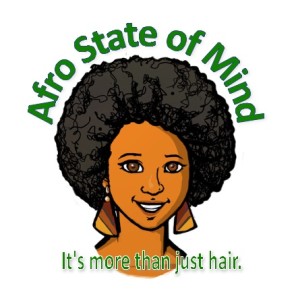
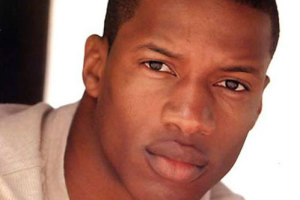
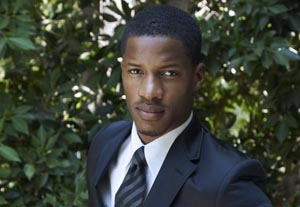
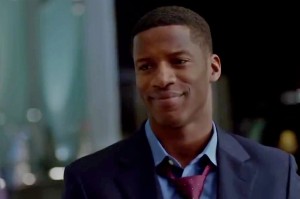
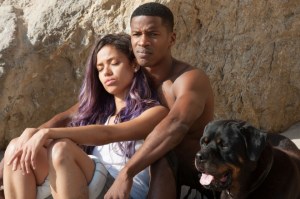
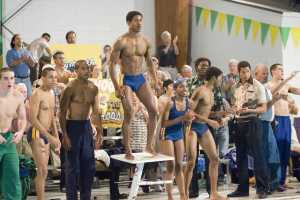
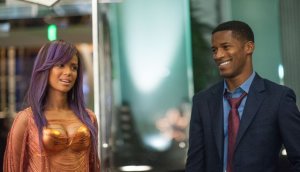


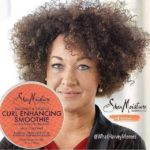
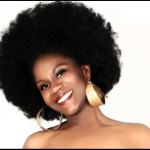
Brilliant interview. The best and most incisive I’ve encountered with Nate Parker. Thank you for sharing his consciousness with us. He’s a good brother.
Nate is married to a white woman and dated white women in college. Like the one he was accused of raping. Why ask him about black women’s hair? He doesn’t date black women.
It was actually a question about a scene in the movie directly related to Black hair. Thanks!